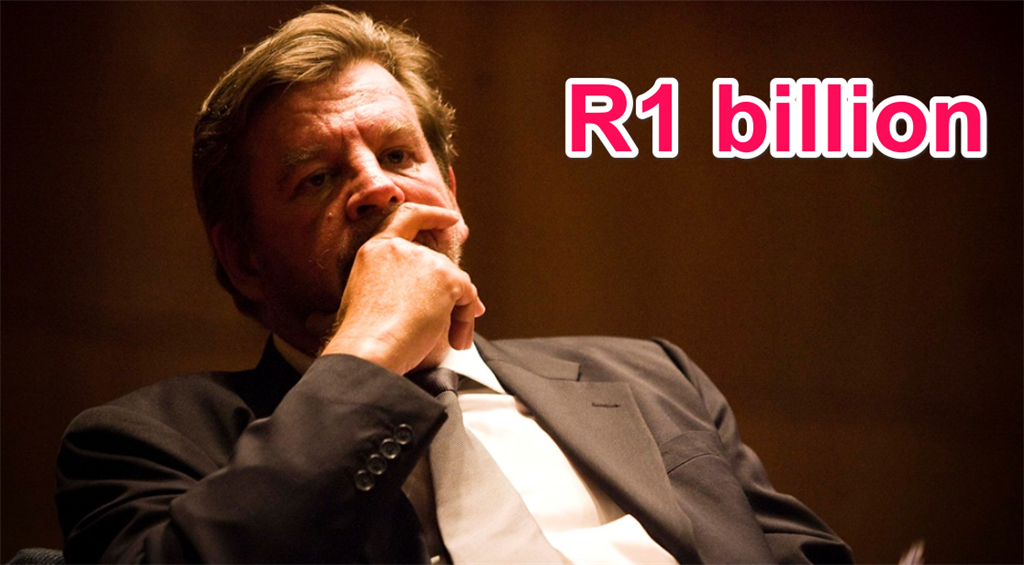How entrepreneurs and businesses can get a slice of the money
- Details of how Johann Rupert’s R1 billion donation will be allocated have just been announced.
- Entrepreneurs (formal sole proprietors) can get a cash payment of R25 000 – which doesn’t need to be repaid.
- Businesses can also get the cash payment, plus a low-interest loan of up to R1 million.
- The loan comes with a 12-month repayment holiday.
- For more stories, go to Business Insider’s home page.
The details
of how Johann Rupert’s R1 billion donation will be allocated have just been
announced.
There are two options. Entrepreneurs (formal sole proprietors) can get R25 000 in cash – which is a once-off grant, and doesn’t have to be
repaid.
Companies – as well as close corporations and trusts – can also get the cash payment of R25 000, as well as a low-interest
loan with a 12-month repayment holiday. Loans of between R250 000 and R1 million are available.
These businesses need to be
tax compliant and have to show that they were viable before the coronavirus hit.
“When applying, these entities
will therefore be required to submit documents and supporting evidence to
corroborate that it is a viable business that was impacted by COVID-19. This
proof can be a demonstration of a decrease in turnover, erosion of working
capital, or inability to pay salaries,” says Ben Bierman, managing director at
Business Partners, which funds entrepreneurs. The newly established Sukuma Relief fund will be
administered by Business Partners.
Read: Here’s how much Rupert, Oppenheimer
will be worth after donating R1 billion each
Formal
sole proprietors will need to provide proof of an active bank account to show
business activity prior to the outbreak of the pandemic, and also need to be tax compliant. (A sole proprietorship is a business that is managed
and owned by an individual, and the income from the business is included in his
or her own income tax return.)
Payouts
will be made within seven days of application, if approved.
“We understand that many businesses are currently in need of immediate
financial relief,” says Bierman.
He
stressed that Business Partners will not profit from the funding in any
way, and that no fees will be charged. Rupert will not get any of his donation
back.
The
EFF has accused Rupert and Nicky Oppenheimer of extending “exploitative
loans disguised as donations”, after disappointment that their donations were not
outright payments to businesses.
Bierman
said that the repayment of the loans is an appeal to beneficiaries to “pay it
forward” once their businesses are back on their feet, to allow for
the continuing support of other small businesses into the future
Read | The
Oppenheimers’ R1bn donation: How businesses, workers can get a slice of the
money
Billionaire
Patrice Motsepe – via the Motsepe Foundation and his associated companies – has
also donated R1 billion but the money will be used to help buy
and distribute water and healthcare products across the
country.
Read | Here’s how much Patrice
Motsepe will be worth after donating R1 billion
Naspers is donating R1.5 billion which will be used to buy medical supplies for
South Africa and includes a donation of R500 million
to the Solidarity Response Fund, an independent relief fund
announced by President Cyril Ramaphosa last week to mitigate the impact of the
pandemic.
Read | Here’s how much Rupert, Oppenheimer will be worth after donating R1 billion each
Rupert is among the top 300 richest people in the world, with a total net worth of around R90 billion.
The 69-year old is chairman of one of the world’s biggest luxury conglomerates, Richemont, which owns brands like Mont Blanc and Cartier. Richemont was created from the assets of Remgro, which was founded almost 80 years ago by Rupert’s father, Anton.
Johann Rupert is still chairperson of Remgro, which has investments in many large South African companies including MediClinic, Distell, FirstRand, RMI (OUTsurance) – as well as the Blue Bulls. He also chairs the international investment fund Reinet (named after Anton Rupert’s birthplace, Graaff Reinet in the Eastern Cape), which owns a stake in British American Tobacco (Dunhill, Lucky Strike and Rothmans).
Rupert has a long involvement with small businesses, and in 1981 founded the Small Business Development Corporation, which funded entrepreneurs. It later became Business Partners. He still has a minority stake in the business.
Rupert is a popular target of the EFF, who view him as the face of white monopoly capital (WMC) – although it has since emerged that EFF deputy president Floyd Shivambu spent time with Rupert at an exclusive wine estate in Stellenbosch to discuss potential business plans.
Receive a daily update on your cellphone with all our latest news: click here.
Also from Business Insider South Africa:

